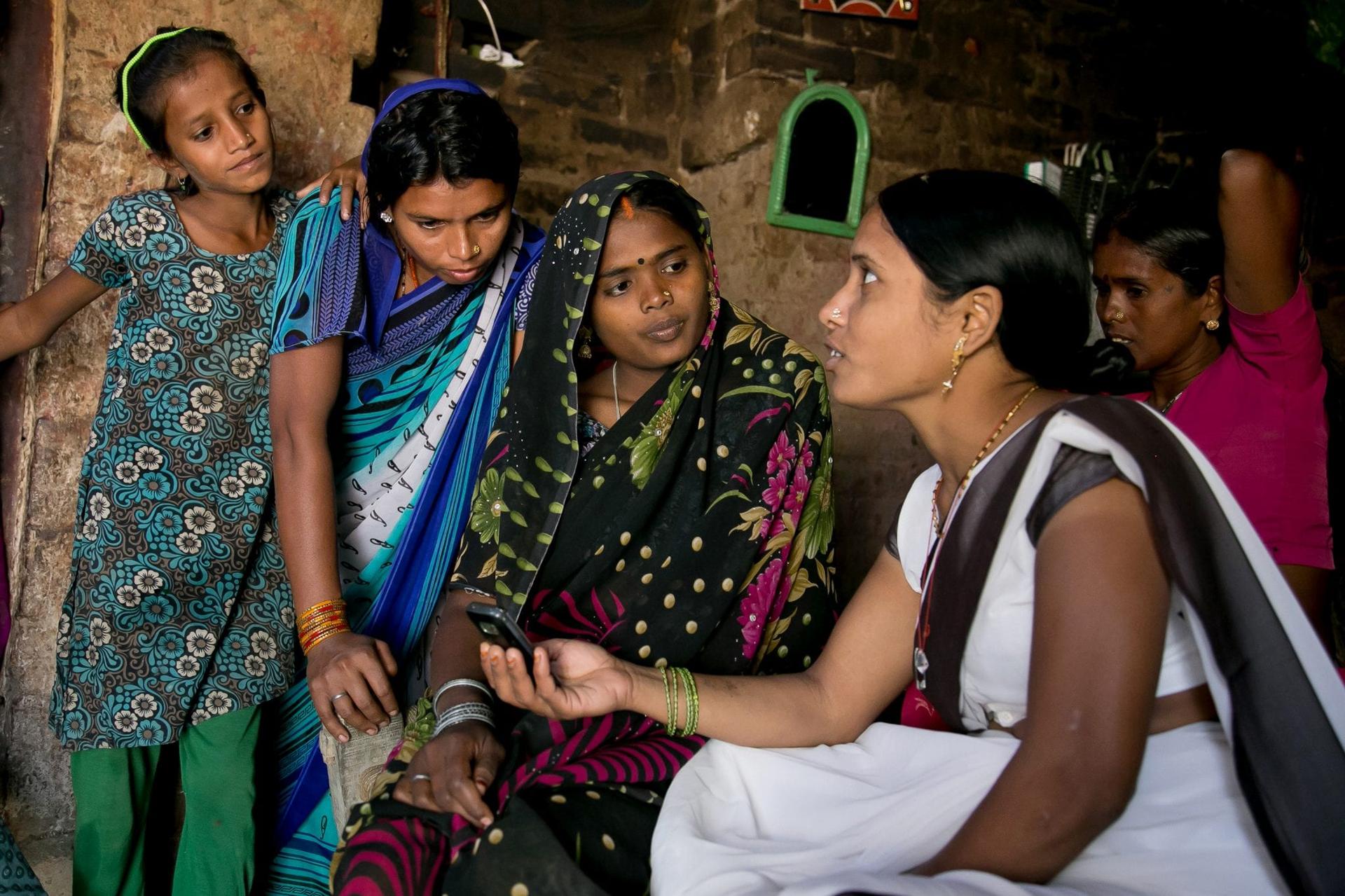KOLKATA, India — Usha Devi, a 25-year-old field worker, is three months pregnant with her third child. But this child, she said confidently, will be born in the hospital.
“Unlike my previous pregnancies, now I know when to call the ambulance,” Devi told Catholic News Service by phone.
Devi is keeping all of her pregnancy details stored on an app in Sunita Prajapati’s mobile phone, and she knows she will receive reminders of all the important dates.
Prajapati, a 26-year-old single mother, is not just her friend but an accredited social health activist. The nearest hospital to her village is five miles away. With no means of public transportation available, the village women have to be alerted by the health activists to make use of basic maternity health services and opt for institutional deliveries of their child.
Prajapati owns an Android phone with two specific apps in which she maintains the record of all the pregnant and lactating mothers in her vicinity. The apps — part of the ReMIND program — serve as the medium of knowledge-sharing and data storage for the rural health workers.
“My child was born at home, and I had a terrible time during my pregnancy,” Prajapati said. “But now I ensure that right information about mother and child’s health reaches every corner of the villages here. And these apps help me maintain records of the women and also educate them about maternal and child health.
“The mobile (phone) has transformed our lives,” she added.
Prajapati and several other accredited social health activists had attended a three-day workshop led by the U.S. bishops’ Catholic Relief Services to understand how to use all the features of the apps. Now Prajapati goes from house to house with her mobile phone, alerting women to maintain their folic acid intake, pre- and postnatal care and mandatory vaccine records of their newborns.
“The apps were introduced in the region five years ago, but it has been in the last couple of years that we could really see the changes due to it,” said Mahabir Kumar, Usha Devi’s husband. “There has not been a single case of maternal death or pregnancy complications in the village of about 200 houses.”
The accredited social health activists are voluntary rural health workers who were introduced in India in the last decade to assist women in childbirth and provide basic pregnancy-related health care.
In the absence of hospitals or healthy practices in rural areas, most pregnancy-related complications took the lives of or affected the health of mothers and their children. The health activists and auxiliary nurse midwives worked as facilitators for institutional deliveries and pre- and postnatal care. Yet their limited education, little or no training and inaccessibility to major parts of the villages often made it hard for them to provide adequate services.
Through audio recordings, videos and color codes for entries, the mobile apps have made it easier for health workers to maintain records of their clients and counsel them. All they need to do is download the app and register it when data connectivity is available; later, they can use the contents, even in remote areas.
Shikha Kesarwani, a 28-year-old social health activist, said she always had detested maintaining people’s health records. Often she forgot to log the information. But now, with the phone in her hand, she feels empowered.
“Even after being an ASHA myself I forgot my daughter’s vaccines,” she told CNS. “But now I can tell by heart the list of women who are in the pregnancy cycle and when would they schedule their medical checkup.”
The apps were developed by several nongovernmental organizations, such as CRS and the international humanitarian organization supporting the Indian government’s rural health mission program.
Recently, an independent study evaluated the cost effectiveness of the smartphone app and concluded that the project was as cost effective as vitamin A and zinc fortification, measles immunization, and oral rehydration therapy — all of which are mandatory under the Indian government’s public health policy.
“This means that the cost of preventing a death through the ReMiND intervention and the cost of averting a DALY (disability adjusted life year) is similar to the cost of doing so through vitamin A, zinc fortification, measles immunization, or oral rehydration therapy,” said Tony Castleman, CRS South Asia representative.
Jaya Menon, monitoring and evaluation manager for health programs for CRS in India, said “there is no denial about the tool that has changed lives,” noting CRS hoped to begin working with the project in other areas of India.

















